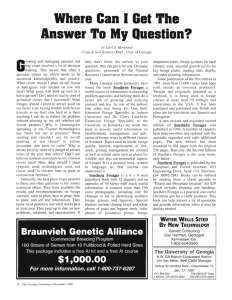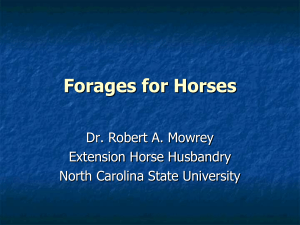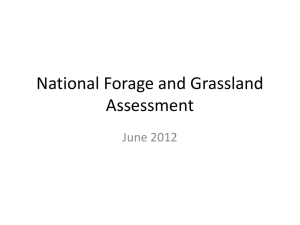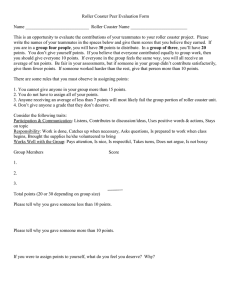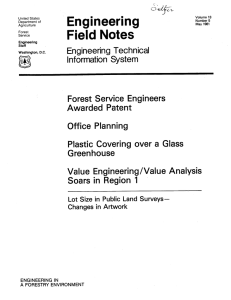Document 11040953
advertisement
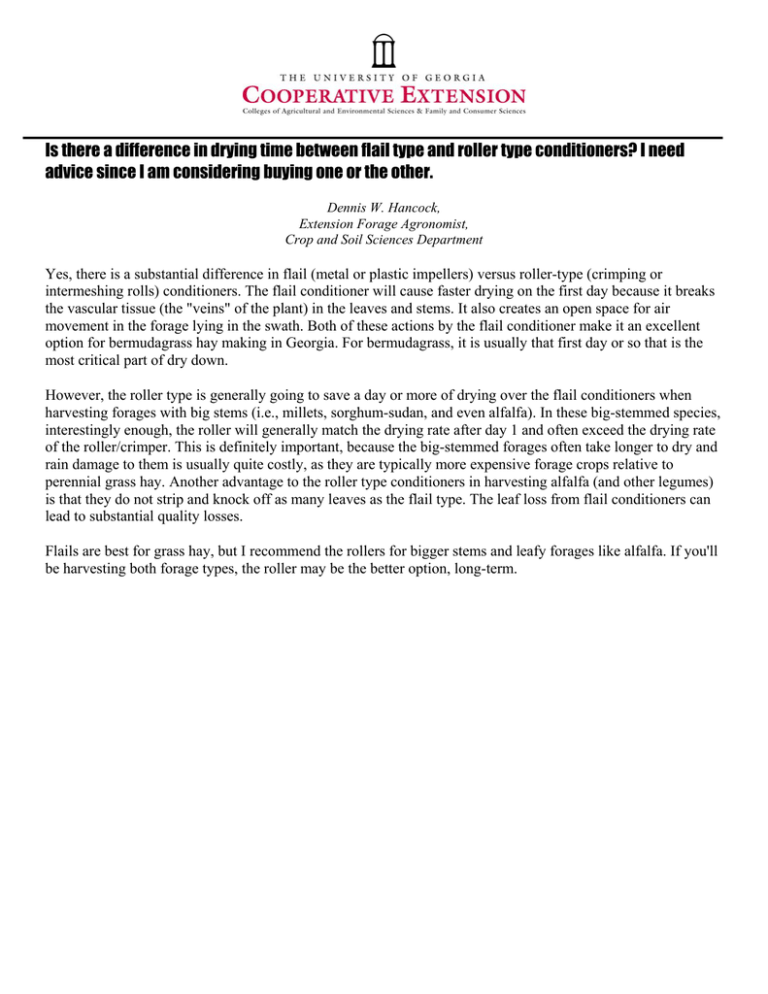
Is there a difference in drying time between flail type and roller type conditioners? I need advice since I am considering buying one or the other. Dennis W. Hancock, Extension Forage Agronomist, Crop and Soil Sciences Department Yes, there is a substantial difference in flail (metal or plastic impellers) versus roller-type (crimping or intermeshing rolls) conditioners. The flail conditioner will cause faster drying on the first day because it breaks the vascular tissue (the "veins" of the plant) in the leaves and stems. It also creates an open space for air movement in the forage lying in the swath. Both of these actions by the flail conditioner make it an excellent option for bermudagrass hay making in Georgia. For bermudagrass, it is usually that first day or so that is the most critical part of dry down. However, the roller type is generally going to save a day or more of drying over the flail conditioners when harvesting forages with big stems (i.e., millets, sorghum-sudan, and even alfalfa). In these big-stemmed species, interestingly enough, the roller will generally match the drying rate after day 1 and often exceed the drying rate of the roller/crimper. This is definitely important, because the big-stemmed forages often take longer to dry and rain damage to them is usually quite costly, as they are typically more expensive forage crops relative to perennial grass hay. Another advantage to the roller type conditioners in harvesting alfalfa (and other legumes) is that they do not strip and knock off as many leaves as the flail type. The leaf loss from flail conditioners can lead to substantial quality losses. Flails are best for grass hay, but I recommend the rollers for bigger stems and leafy forages like alfalfa. If you'll be harvesting both forage types, the roller may be the better option, long-term. The University of Georgia and Ft. Valley State University, the U.S. Department of Agriculture and counties of the state cooperating. Cooperative Extension, the University of Georgia College of Agricultural and Environmental Sciences, offers educational programs, assistance and materials to all people without regard to race, color, national origin, age, gender or disability. CSS-F038 An Equal Opportunity Employer/Affirmative Action Organization Committed to a Diverse Work Force January 2009 Issued in furtherance of Cooperative Extension work, Acts of May 8 and June 30, 1914, The University of Georgia College of Agricultural and Environmental Sciences and the U.S. Department of Agriculture cooperating. J. Scott Angle, Dean and Director.

